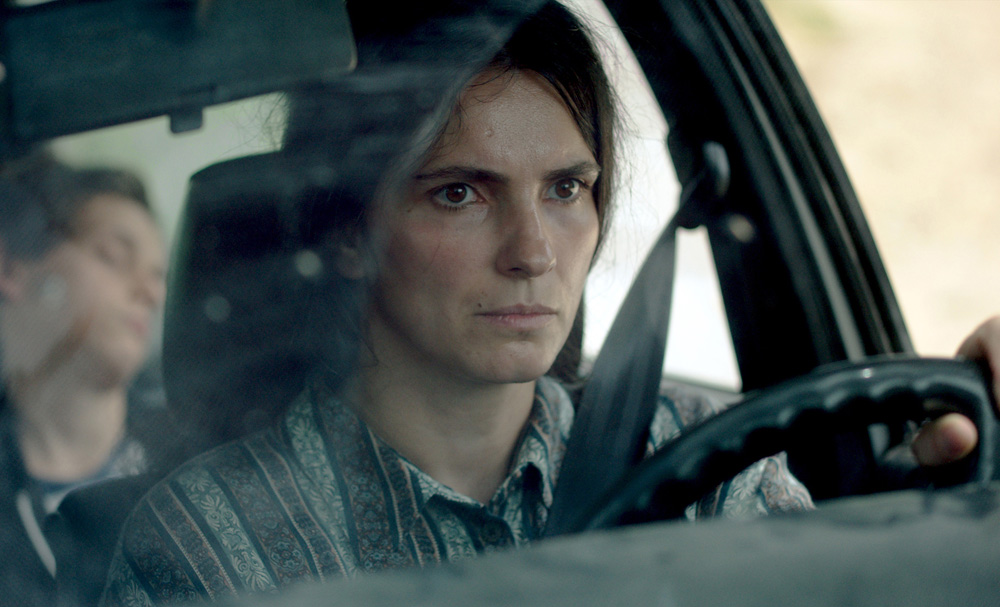You don’t know exactly what Fahrijie (Yllka Gashi) is looking for at the beginning of “Hive,” and to a degree, she doesn’t either. Ducking under some police tape, she sneaks a peek inside a tent where dozens of body bags are laid out, unzipping one after another to look at remains decayed beyond recognition. Once she arrives back home to her father-in-law Haxhi (Cun Lajci) and her two kids, the teenage Zana (Kaona Sylejmani) and her younger brother Edon (Blerta Ismaili), it becomes clear from the empty chair at the dinner table that she was searching for the remains of her husband Agim, whose disappearance during the civil war in Kosovo leaves open the possibility that he is alive when all logic suggests the opposite.
Holding out hope can crush people in writer/director Blerta Basholli’s unusually inspiring debut feature, but thankfully Fahrjie sees it largely as a waste of time. Rather than wonder whether Agim will return as Haxhi does, to the point of refusing to lend his DNA to see if it’s a match with any of the corpses that come through, the entrepreneurial Fahrjie embraces her unique status as a single woman in a village where men look down upon women for working and refuse their permission to seek driver’s licenses. Patriarchial pride threatens to leave the town of Krusha completely impoverished given the devastating consequences of the war and the refusal of the government to acknowledge the missing or dead, but Fahrjie isn’t bothered as much as others by local gossip or the occasional threat of violence, thinking nothing of getting behind the wheel of a car that allows her to transport goods to the nearby city of Pristina and enlisting other women in the village to help make ajvar, a red pepper paste that finds a home on the shelves of a supermarket.
You can tell it’s a major event when Fahrjie gets a car purely from the rare smile that creeps across her face and the stoic Gashi is compelling throughout when emotions break through ever so slightly through the steely facade she must put up at all times. “Hive” is small in scale, but Basholli ably invokes the fear that has pervaded the region since the war and the unknown left in its wake likely hardened sexism when holding onto the past is seen by most men as a strength, speaking to history only in how it has shaped the behavior of those who survived it. (Notably, the filmmaker only includes an expositional title card at the end.) While Fahrjie processes her own trauma as a way of bolstering her determination, Baholli generously allows her ensemble of characters to express it in different ways, sometimes limited to casting bit parts with unforgettable faces or depicting small curious decisions as a reflection of those who have been stung by the past. Still, when left with little choice other than to mourn, it becomes galvanizing to see Fahrijie take control of her own fate in “Hive,” finding what success she can in filling up jars to sell, but arguably having even more in what she’s able to unbottle in the process.
“Hive” will play once more at the Sundance Film Festival in a 48-hour window starting on February 2nd at 7 am MT.




